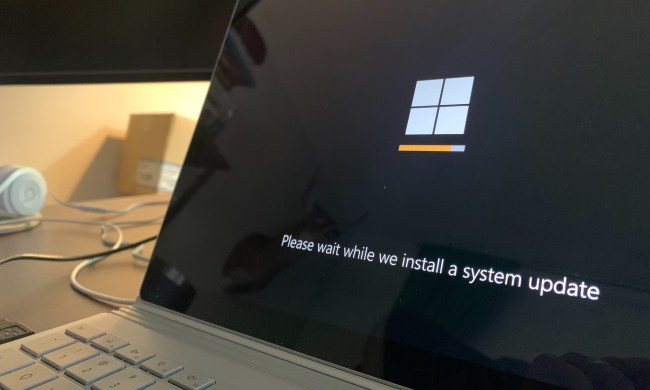 Microsoft
Microsoft
Microsoft has confirmed that it is going on holiday break for Windows 11 updates, indicating that any major software features won’t be released until January 2025.
The company rolled out its latest software update, OS Build 26100.2314 on November 12, and it largely addressed security issues. It also detailed that there won’t be any preview updates released in December 2024, outside of monthly security releases.
“Because of minimal operations during the Western holidays and the upcoming new year, there won’t be a non-security preview release for the month of December 2024. There will be a monthly security release for December 2024. Normal monthly servicing for both security and non-security preview releases will resume in January 2025,” Microsoft said on its support website.
Typically, Microsoft releases a Preview Build OS version of Windows 11 monthly to its Windows Insiders users in the Dev (developers) and Beta channels. The builds include unique features that may have the potential to release to public versions of Windows software, but don’t always get to see final builds. Microsoft is halting the progress of this program during the holiday season, as many staff members will be on break.
Recently, a Windows Insider user found a universal share button feature buried within the code of a Preview Build. The feature was disabled by default, but once enabled, it allows for a Share button throughout the Windows 11 operating system. Users will be able to send files, links, or text conveniently from their desktops, including in the taskbar and Start menu. Another Preview Build feature is Rewrite for the Notepad app, which allows you to generate alternative text to fit your specific needs, including modifying text to be longer, shorter, or to be written in a certain tone or format.
However, it is vital that Microsoft’s security software updates continue as usual. In its recent security update, Microsoft addressed 91 vulnerabilities in Windows 11. The update includes four zero-day vulnerabilities, that remain actively exploited by hackers: CVE-2024-43451, CVE-2024-49039, CVE-2024-49040, and CVE-2024-49019.

Fionna Agomuoh is a Computing Writer at Digital Trends. She covers a range of topics in the computing space, including…
A forced Windows update is coming next month

Windows 11 version 22H2 will reach its end of servicing next month, and Microsoft has announced a forced update to 23H2 for October 8. This means machines running 22H2 (Home and Pro editions) will stop receiving updates after next month, leaving them vulnerable to security threats. Enterprise, Education, and Internet of Things (IoT) Enterprise editions running version 21H2 will also receive the automatic update.
In a post on the Windows Message Center, Microsoft urges users to update before October 8 or participate in the automatic update to keep themselves "protected and productive" since the monthly Patch Tuesday updates are "critical to security and ecosystem health."
Read more
Don’t use your Windows PC without using these security settings

Historically, Windows has had a bad reputation for security, and there are far more malware strains that target Windows than any other operating system out there -- largely due to the scale of PCs that exist in the world. With such a vast array of potential threats, it’s more important than ever to keep your Microsoft PC safe and protected.
But doing so doesn’t have to be difficult or expensive. In fact, you can start right now with just the computer you own, no extra software necessary. And if you do want to supplement your PC with some of the best Windows apps that will boost your security and privacy, you don’t need to pay a penny.
Read more
This optional Windows 11 update is totally worth installing

Your Windows 11 computer is about to get even better, thanks to the latest KB5041587 update. As Microsoft mentioned in a support page post, this update makes Android file sharing easier, fixes bugs in File Explorer, and adds performance tweaks to Windows Narrator and the voice access feature.
The new update allows you to share files more quickly with your Android device using the Microsoft Phone Link app. You'll need to install the app on your Android device and your Windows 11 computer and go through the setup process, which includes giving quite a few permissions. When sharing from your PC, choose the Phone Link as the destination app, and when sharing from your Android device, select the link for the Windows app as your sharing option.
Read more




















 English (US) ·
English (US) ·